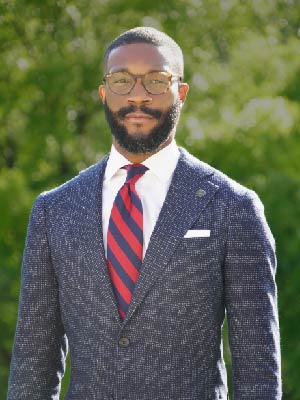Birmingham, Alabama, will always be synonymous with social justice change in our world. On our doorstep, it was here that civil rights leaders stared down the evils of Jim Crow and marched, rallied and fought for a brighter, more inclusive future.
We’re so proud of that legacy and the central role Birmingham’s sons and daughters played in Black history, which we and other communities across the nation pay special honor to each February. But we also recognize that the work is far from over.
Birmingham’s sons and daughters played in Black history, which we and other communities across the nation pay special honor to each February. But we also recognize that the work is far from over.
Today, we eye new challenges — including ensuring equity and inclusion in Birmingham’s workforce. This includes Black Americans and other groups fighting against marginalization — such as Americans with disabilities.
Recently, I had the great pleasure of participating in a panel hosted by the United States Conference of Mayors, which underscored the need to prioritize disability-inclusive workforces. This focus on inclusion is more critical than ever, especially when considering that it’s estimated that 1 in 5 Americans with disabilities became unemployed during the height of the COVID-19 pandemic.
In Birmingham, we recognize these gaps and are working to fill them. In addition to becoming more inclusive in our local government’s own employment practices, we have committed to spend $100 million with minority-owned businesses, including those owned by people with disabilities, by 2025. That starts with an initiative we call VITAL or Valuing Inclusion to Accelerate and Lift, which serves as our way of remaining transparent about how much business in Birmingham is currently going to diverse vendors and suppliers and, most importantly, how we can improve those efforts.
We have also assembled a team to be a part of innovation training with the Bloomberg Center for Public Innovation at Johns Hopkins University. This training will explicitly review our business license process and help us design a better experience for those from all walks of life seeking a Birmingham business license.
We are also nearing the conclusion of our disparity study, which will determine whether a governmental agency has actively or passively discriminated against certain groups. This includes legal analysis, policy review, data collection and more.
And as Birmingham prepares to welcome the world to our doorstop for the 2022 World Games in July, we have created the World of Opportunity program. Its goal is to connect local, diverse businesses — including those owned by people with disabilities — in Birmingham and the greater metro area with opportunities to provide goods and services for this historic event. We want those businesses to reflect the diversity and beauty that defines our city, and our legacy.
My administration was built on the principle of putting people first. In that spirit, I challenge all state and local leaders to prioritize disability in their workforce development efforts and include those with disabilities in their diversity, equity and inclusion initiatives. One way to do so is to engage with the State Exchange on Employment and Disability (SEED), a unique collaboration managed by the U.S. Department of Labor’s Office of Disability Employment Policy that helps state and local governments implement policies that advance the employment of people with disabilities.
Everyone deserves a seat at the table — it’s a righteous cause worth fighting for. Birmingham knows that all too well, and we’re committed to continuing to serve as a leader in advancing access and opportunity, for all people, including individuals with disabilities.
Randall Woodfin is the mayor of Birmingham, Alabama.

 U.S. Department of Labor Blog
U.S. Department of Labor Blog